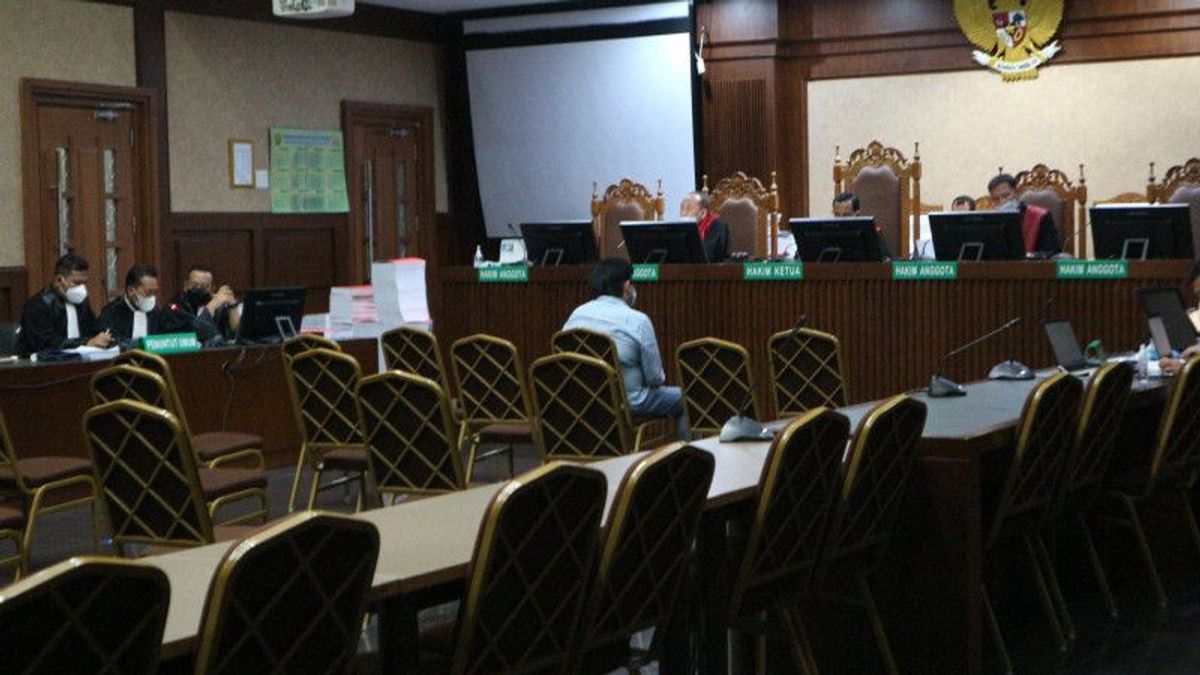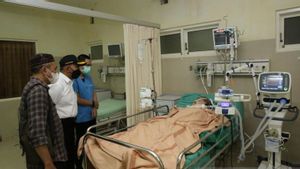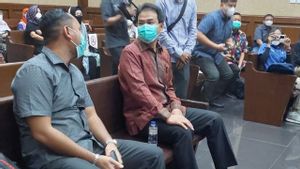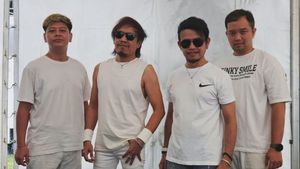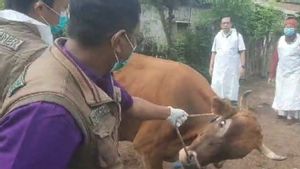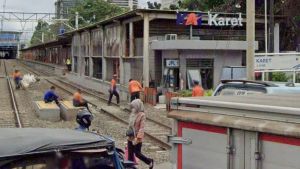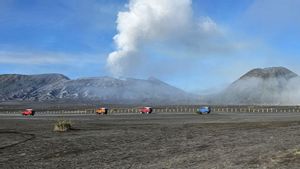JAKARTA - President Commissioner of PT Trada Alam Minera Heru Hidayat was sentenced to death because he was found guilty of corruption which resulted in state losses of IDR 22.788 trillion from the management of PT Asabri (Persero) funds and money laundering.
"Declaring that the defendant Heru Hidayat is legally proven guilty of committing a criminal act of corruption with joint weighting and the crime of money laundering as in the primary and second primary charges, punishing the defendant Heru Hidayat with the death penalty," said the Public Prosecutor of the Attorney General's Office at the Corruption Crimes Court (Tipikor) Jakarta, Monday, December 6th.
Heru is one of seven defendants in the alleged corruption case in the management of PT Asuransi Sosial Armed Forces of the Republic of Indonesia (Asabri) Persero which is scheduled to undergo a trial reading the charges today.
In addition to being sentenced to death, Heru Hidayat is also required to pay a substitute sentence.
Imposing the defendant with a replacement fee of Rp12,643 trillion with the stipulation that if the convict does not pay the replacement money at the latest within 1 month after the decision has permanent legal force, then his property will be confiscated by the prosecutor and auctioned off to cover the replacement money and if the convict does not have sufficient property to cover the replacement money," said the prosecutor.
Heru was found guilty of committing acts in two charges, namely the first indictment of Article 2 paragraph (1) in conjunction with Article 18 of Law no. 31 of 1999 as amended by Law no. 20 of 2001 concerning the Eradication of Criminal Acts of Corruption in conjunction with Article 55 paragraph (1) of the 1st Criminal Code, and Article 3 of Law No. 8 of 2010 concerning the Prevention and Eradication of the Crime of Money Laundering.
SEE ALSO:
Claims Considered Wrong
Heru Hidayat's attorney, Kresna Hutauruk, assessed that the death penalty is regulated in Article 2 paragraph 2 of the Corruption Crime Act (Tipikor). Meanwhile, in his client's indictment, the Public Prosecutor did not include this article. Heru was instead charged with Article 2 paragraph 1 and Article 3 of the Anti-Corruption Law and Articles 3 and 4 of the Money Laundering Law.
"So how is it possible for the Public Prosecutor to sue Heru Hidayat outside of the articles in the indictment. The demands outside the indictment are clearly not according to the rules, excessive, and beyond the authority of the Public Prosecutor or can be considered as abuse of power," Kresna said in a written statement, Monday, December 6 night.
In addition, continued Heru, in Article 2 paragraph 2 of the Anti-Corruption Law and its explanation of certain conditions in the application of the death penalty, the conditions are when the country is in a state of natural disaster, monetary crisis, and repetition of criminal acts. In the Heru Hidayat case, these terms and conditions were deemed non-existent.
"From the beginning of the indictment, of course, the Prosecutor has realized that it is impossible to apply Article 2 paragraph (2) to Heru Hidayat, that's why the Public Prosecutor did not include Article 2 paragraph (2) of the Anti-Corruption Law in his indictment, why is he suddenly demanding death now?" he said.
Kresna assessed that the prosecutor's reasoning regarding this case of repeating a crime was not true. Heru Hidayat's team of lawyers asked the judge to understand the meaning of repeating a crime in the Criminal Code.
Kresna said that in the Criminal Code it is stated that the repetition of a crime is intended for people who have been convicted and then tried again for repeating the same act. Meanwhile, in this case, Heru was charged with committing a crime in 2012-2019, before his client was convicted in the Jiwasraya case.
He asked the Public Prosecutor to enforce the law according to the procedure. Because this claim is outside the indictment and is considered to have injured the sense of justice in the case, especially for Heru.
"We strongly believe and hope that the Honorable Panel of Judges will not act as the prosecutor in making decisions that are beyond the indictment. Of course, later in our defense, we will reveal all the irregularities and oddities in this case," he asserted.
On the other hand, Kresna claimed that his client during the trial was not proven to have received a cash flow of more than Rp12 trillion as alleged by the prosecutor. Heru was even claimed not to have given anything to ASABRI officials.
"In addition, in our opinion, the element of state losses is also not proven because until now ASABRI still owns shares and units of participation in mutual funds and BPK has never calculated the profits that ASABRI has earned in the sale of shares for the period 2012-2019, so it is clear that there is no evidence of any wrongdoing. charged by the Public Prosecutor," he explained.
The English, Chinese, Japanese, Arabic, and French versions are automatically generated by the AI. So there may still be inaccuracies in translating, please always see Indonesian as our main language. (system supported by DigitalSiber.id)
